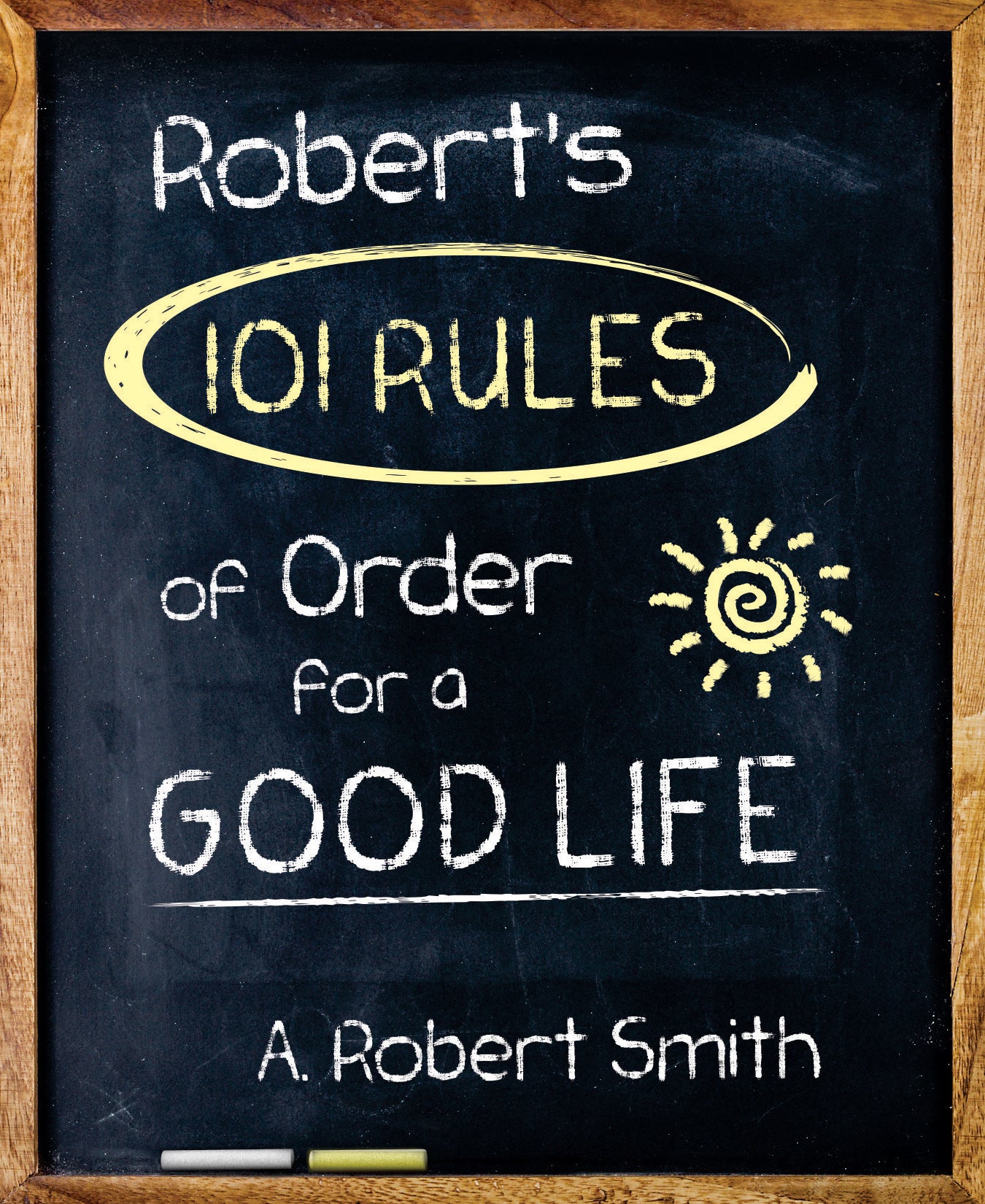Beliefs vary around the world, usually in conjunction with a person’s religious faith.
Instead of a prose account of his own views, veteran journalist and author, A. Robert Smith, uses the old-fashioned style of proverbs—short, often punchy statements that are meaningful and often humorous. Benjamin Franklin, his favorite of America’s Founding Fathers, was a master at composing terse phrases that were full of wisdom, humor, and common sense. He published them in the Pennsylvania Gazette before the American Revolution. About half of the proverbs contained here express views on marriage, family relations, child behavior, and other essential topics. The other half includes proverbs by Ben Franklin and sayings from other popular figures, such as Shakespeare, Confucius, Schweitzer, Churchill, Eleanor and Teddy Roosevelt, the Buddha, Maya Angelou, Mark Twain, and Will Rogers.
Nine of the Ten Commandments found in the Christian faith are included in Robert’s 101 Rules. And some comparable rules from all the major religions. Altogether, they comprise a guide for living the good life, so that everyone can say about their life what his granddaughter-in-law, Samantha Avery, said to him, “Angels believe in me!”
A. Robert Smith, an award-winning journalist and the author of ten books, has been an editorial writer, a magazine editor, and a Washington correspondent covering Congress and seven presidents. He was the Washington correspondent for the Portland Oregonian and has been published in the New York Times Magazine. He was the recipient of awards by the Alaska Press Club and the Society of Professional Journalists.
Contents
Introduction
This I Believe
Preface
God Is Love
1. Vices & Virtues
Proverbs 1 to 31
2. Money & Work
Proverbs 32 to 46
3. Family & Friends
Proverbs 47 to 72
4. Love & Marriage
Proverbs 73 to 83
5. The Big Picture
Proverbs to 84 to 101
Chapter 6
Why Reincarnation?
Introduction
This I Believe
Beliefs vary around the world, usually in conjunction with a person’s religious faith. As a journalist, writing about many public figures, I withheld my own views. That’s what journalists do. I gave folks I interviewed a chance to speak without any input from me, whatever they wanted to say.
This memoir is my chance to say what I like and dislike.
Instead of a prose account of my views, I am using the old fashion style of proverbs— short, often punchy statements that are meaningful and often humorous. I got hooked on proverbs in reading about Benjamin Franklin, my favorite of America’s Founding Fathers. Franklin was a master at composing terse phrases that were full of wisdom, humor, and common sense. He published them in the Pennsylvania Gazette before the American Revolution.
I composed about half of the proverbs contained here, expressed my own views on marriage, family relations, child behavior, and other essential topics. The other half includes proverbs by Ben Franklin and sayings from other popular figures, such as Shakespeare, Confucius, Schweitzer, Churchill, Eleanor and Teddy Roosevelt, the Buddha, Maya Angelou, Mark Twain, and Will Rogers.
Nine of the Ten Commandments found in the Christian faith are included in Robert’s 101 Rules: only the fourth one is eliminated, the one about the shops being closed for business on Sunday. When I was a kid in Pennsylvania, all of the stores except grocery’s were closed on Sunday. Now retail commerce has squeezed out the Fourth Commandment, and church time is now an endangered value!
I looked for comparable rules in all the major religions. Jews have more than ten rules, counting their 613 mitzvoth (commandments). They cover the basics of human conduct, such as don’t take the name of God i vain. I adopted several, such as don’t swear needlessly.
The Muslims have several commandments, from a belief in angels, to prayers, fasting, and a pilgrimage to Mecca. I also agree with what my granddaughter-in-law Samantha Avery said, “Angels believe in me!” The rest of what I believe is in these following proverbs.
All the proverbs are marked with the author except mine. Most of those by Ben Franklin are identified by his first name.
Preface
God Is Love
We all have heard that phrase “God Is Love” many times before, but not until I heard it in our Quaker meeting one Sunday did it mean something uniquely different. A woman stood up amid the silent churchgoers and said: “God is Love.” Then she sat down. Nothing more was said. Just a deep well of silence blessed the room. This time it seemed different. “God is Love” can mean several things, not just that the Deity personifies love.
We think of Love as a feeling, a heartfelt sensation. But did God initiate this feeling, or did I initiate it on my own? The question is: Who, or what is God? I don’t agree with the image of God as king-like, issuing decisions that affect the lives of billions of people at once.
As I focused on “God is Love,” a new meaning came to me. If God is not a person, then what other forms could God be? We could imagine God as a being or nonbeing. I think of Love as energy—Love energy. Love has a special power to change. Love power affects most things positively— people, animals, plants. We see that change most powerfully in a mother’s love for her babies, whether they are humans or animals. As the poet Rumi put it, “We are born of Love; Love is our mother.”
But does Love energy come from a higher source, or is Love energy its own source? It’s like asking whether the sun’s rays are from a higher source, or from their own source? Once we give up thinking of God as a human form, we are freed to think of God in any form. That may be why Jesus told us to love our enemies. Love energy has a positive effect on everything, even the hostile attitude of foes.
The final act of love, as Reinhold Niebuhr said, is forgiveness. When you can forgive those who have wronged you, you’re on the right track for Eden.
Eden is the term I like for The Hereafter. Eden is what lies ahead after we’ve given up parading around in our skin. More on Eden in Chapter 6.





